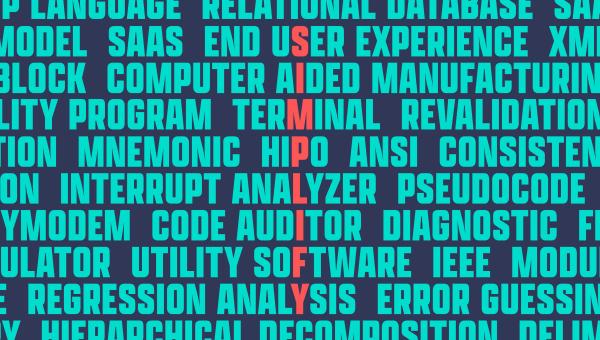Unlocking Success: Essential Skills and Roles of a Learning Platform Administrator
With the surge of technology in education,universities,colleges,and schools are increasingly relying on sophisticated learning management systems (LMS) to enrich teaching and learning experiences. The role of a Learning Platform Administrator has thus become critical. If you’re a job seeker looking to break into education technology (EdTech), understanding the crucial responsibilities, in-demand skills, and unique benefits of this position will give you a distinct edge. In this complete guide, we will outline everything you need to no about becoming a accomplished Learning Platform Administrator in academic institutions.
What is a Learning Platform Administrator?
A Learning Platform Administrator manages, maintains, and optimizes learning management systems and other digital learning environments used by universities, colleges, and schools. Acting as the bridge between IT departments, educators, and students, these professionals ensure seamless access, troubleshoot issues, and facilitate digital content delivery.
Key Responsibilities of a Learning Platform Administrator
the specific roles may vary based on the institution and the learning platform used (such as Moodle, Canvas, Blackboard, or Google classroom), but common responsibilities include:
- System Configuration & Optimization: Setting up courses, user groups, permissions, and navigation for optimum user experience.
- Technical Support: Assisting faculty, staff, and students with troubleshooting and resolving technical issues.
- User Management: managing user accounts, access controls, and roles for instructors, students, and administrative staff.
- Training & Documentation: Creating user guides, conducting workshops, and providing training sessions on utilizing the LMS effectively.
- Data Management & Analytics: Generating reports and analytics for course participation, completion rates, and system usage to support data-driven decision making.
- System Updates & Integrations: Overseeing updates, integrating third-party tools, and ensuring data security and privacy compliance.
- Quality Assurance: Testing new features and regularly auditing courses for accessibility and usability.
Essential Skills for Learning Platform Administrators
Excelling in an educational technology job as a Learning Platform Administrator requires a balanced combination of technical prowess and interpersonal skills. Key competencies include:
Technical Skills
- LMS Expertise: Deep understanding of popular learning management systems (e.g., Moodle, Canvas, Blackboard, Schoology).
- Database Management: Familiarity with user data management, course archiving, and backup systems.
- System Integrations: experience connecting the LMS with third-party educational tools and plugins.
- basic Programming/Scripting: Knowledge of HTML, CSS, or JavaScript can enhance automation and customization.
- cybersecurity awareness: Understanding of data protection principles and regulatory requirements (GDPR, FERPA).
Interpersonal and Soft Skills
- Communication: Ability to explain technical concepts in an approachable manner to non-technical users.
- Problem-Solving: Resourcefulness in troubleshooting and finding efficient solutions.
- Project Management: Capable of leading rollouts, upgrades, and user training initiatives.
- Adaptability: Willingness to keep up with evolving EdTech trends and tools.
- Customer Service: patience and empathy in supporting users with varying levels of tech proficiency.
Benefits of Becoming a learning platform Administrator in Education Technology
Working as a Learning Platform Administrator at a university, college, or school is uniquely rewarding. Here’s why:
- career Growth: Increased demand for EdTech professionals opens doors for advancement to instructional technology leadership roles.
- Job Stability: Educational institutions consistently invest in digital learning infrastructure, ensuring dependable employment opportunities.
- Skill Development: Regular exposure to new technologies, systems, and educational methodologies accelerates your professional growth.
- Impactful Work: Enabling better learning experiences for students, supporting educators, and contributing to the future of education.
- Collaborative Surroundings: Opportunity to work with diverse teams—including IT, teaching staff, and management.
- Work-Life balance: Many academic institutions offer flexible schedules and generous benefits.
Practical Tips for Landing a Learning Platform Administrator role
If you’re eager to secure your next EdTech job as a Learning Platform Administrator, here are practical steps to enhance your employability:
1. Gain Relevant Experience
- Volunteer to help faculty with online course setup or provide peer LMS support during your studies.
- Seek internships in university IT or academic technology departments.
2.Get Certified
- Pursue industry-recognized certifications such as Certified Moodle Admin, Canvas Certified Educator, or Google Certified Educator.
- Take online courses in educational technology, system administration, and data privacy.
3. Build a Portfolio
- Document your LMS administration projects, technical solutions, or training materials developed.
- Showcase any quantitative results (e.g., improved course completion rates, reduced system downtime).
4. Network Within the edtech Community
- Join professional associations, attend webinars, and participate in EdTech conferences (virtual or onsite).
- Engage in online communities to stay updated and seek mentorship.
5. Tailor Your Resume and Cover Letter
- Align your experience and skills with keywords from the job description (e.g., “LMS administration”, “user support”, “EdTech systems integration”).
- Highlight soft skills such as communication and adaptability,wich are prized in educational institutions.
Future Trends in Learning Platform Administration
The evolution of digital learning platforms is rapid, and Learning Platform Administrators need to stay ahead of the curve.Emerging trends include:
- AI-Driven Analytics: Leveraging artificial intelligence to provide actionable insights on student engagement and learning outcomes.
- Personalized Learning Paths: Supporting adaptive learning technologies for individualized education experiences.
- Mobile-First Platforms: ensuring seamless LMS functionality across diverse devices.
- Integrations with EdTech Ecosystems: Linking LMS with content repositories,virtual classrooms,and assessment tools.
- Emphasis on Accessibility: Meeting universal design standards so all learners have equitable access.
- Robust Cybersecurity: Maintaining data integrity and privacy as cyber threats evolve.
Continuous professional development is key—stay curious, attend relevant training, and keep an eye on industry developments.
conclusion: Your Path to an Impactful EdTech Career
Becoming a Learning Platform Administrator in education technology at universities, colleges, or schools is both a challenging and enriching career choice. You’ll play a direct role in transforming education,empowering educators,and shaping student success with technology. By building in-demand skills, obtaining specialized certifications, and connecting with EdTech professionals, you can set yourself apart and unlock rewarding job opportunities. Embark on your journey in academic technology administration—the digital classroom future needs skilled leaders like you!

